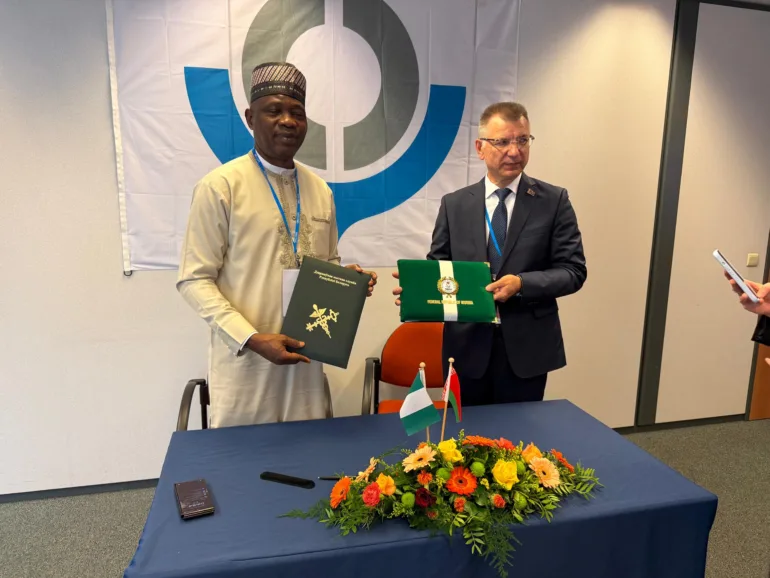The Nigeria Customs Service (NCS) and the Republic of Belarus have signed a bilateral Memorandum of Understanding (MoU) to strengthen cooperation against smuggling and fraud.
The agreement was finalized Friday during a side event at the 145th/146th Sessions of the Customs Co-operation Council, held at the World Customs Organisation (WCO) Headquarters in Brussels.
The MoU was signed by NCS Comptroller-General Bashir Adeniyi and Vladimir Orlovsky, Chairman of Belarus’s State Customs Committee.
CGC Adeniyi described the MoU as a strategic step to enhance global customs diplomacy and reform, focusing on information exchange, joint enforcement, and capacity building.
“We are opening a new chapter of international cooperation based on mutual trust, operational efficiency, and proactive intelligence,” Adeniyi said. “This partnership strengthens our fight against transnational threats, facilitates secure trade, and modernizes procedures aligned with global best practices.”
The MoU provides a legal framework for mutual administrative assistance in revenue protection, classification, valuation, prohibition enforcement, and joint operations targeting smuggling and customs fraud. It draws on key international conventions, including the Single Convention on Narcotic Drugs (1961), the Convention on Psychotropic Substances (1971), CITES, and the WCO’s 1953 Recommendation on Mutual Administrative Assistance.
Adeniyi noted the agreement reflects the NCS’s shift toward an intelligence-led enforcement model aimed at positioning Nigeria as a hub for innovative and compliant customs operations in Africa.
“This framework fosters learning, innovation, and solidarity among customs administrations,” he added. “Nigeria is proud to partner with Belarus to protect borders and promote legitimate trade.”
Orlovsky praised the NCS’s commitment to international collaboration and expressed optimism about fruitful exchanges and joint implementation.
“This MoU lays the foundation for strategic engagement between our administrations,” he said. “Our shared dedication to safeguarding trade and combating illicit activities will be the cornerstone of this partnership.”
Under the agreement, both countries will cooperate on joint investigations, training, real-time intelligence sharing, and enforcement procedures in line with national laws.


